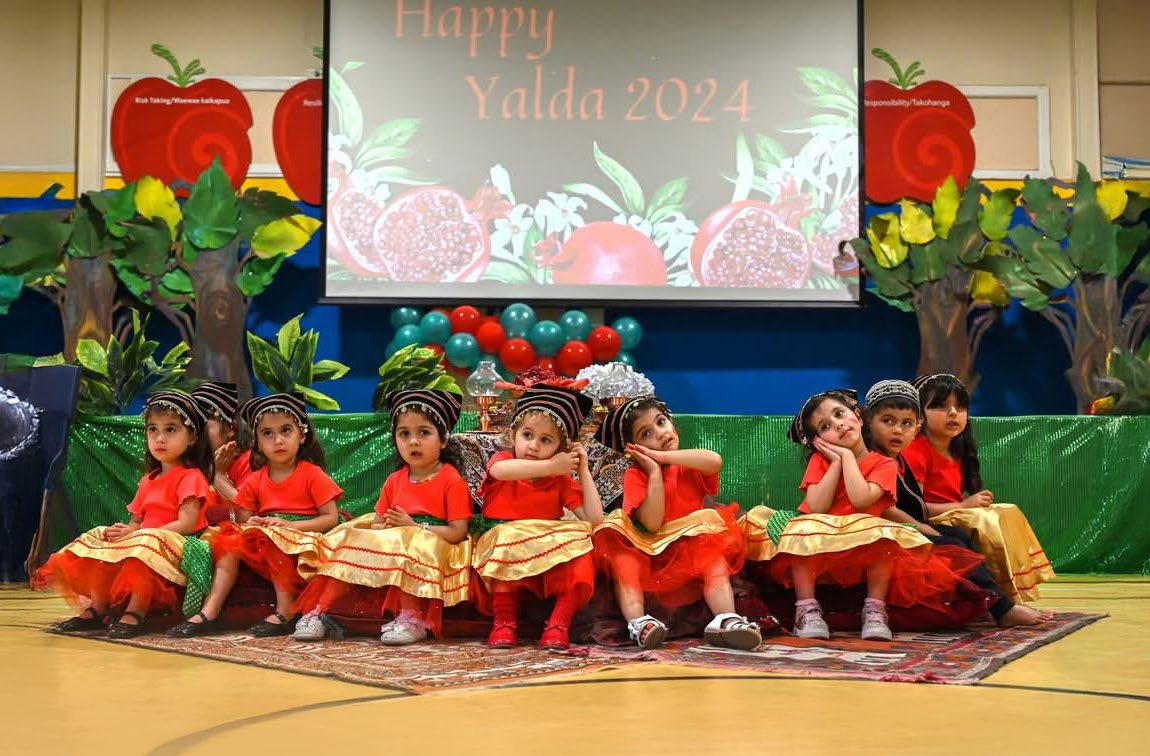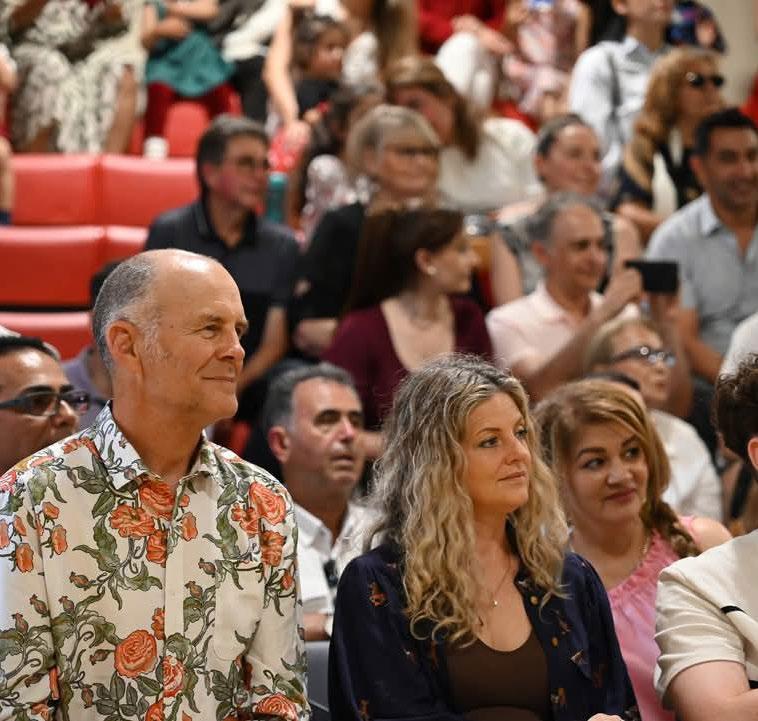
5 minute read
Cultural inclusion at Fruitvale Primary School supports Farsi-speaking communities
Through a partnership with Peyvand Academy, Fruitvale Primary School in West Auckland is helping Farsi-speaking families feel welcome and empowered. As part of the Ministry of Education’s Learning Community Hubs, their collaboration shows how cultural inclusion can transform migrant experiences of education in Aotearoa.
In 2020, the Ministry of Education launched Learning Community Hubs (LCHs) to help migrant communities engage with the New Zealand education system through building confidence in their understanding of the school curriculum, NCEA and pathways to employment.
Fast-forward to 2025, there are more than 50 planned hubs nationwide, each one supporting the educational success of the country’s diverse students.
As of the 2023 New Zealand Census, approximately 1.4 million people residing in New Zealand were born overseas, accounting for about 29 percent of the total population. This proportion makes us one of the most migrant-rich countries globally. Given many of New Zealand’s migrant population are former refugees, their stories are painted with resilience and hope for a better future.
One of 23 LCH initiatives in Auckland in 2024, the collaboration between cultural organisation Peyvand Academy and Fruitvale Primary School drives cultural inclusion for the school’s local Farsi-speaking (Persian) community.
Faranak Saidi, founder of Peyvand Academy, and Donal McLean, principal of Fruitvale Primary School, share more on how their collaboration has delivered culturally grounded parent learning sessions and vibrant school events to help Persian families transition into life and learning in Aotearoa.

Embracing culture with Yalda Night
By embracing the Persian community’s heritage, customs and language, Peyvand Academy has successfully provided a bridge for parents and students to feel embraced and engage with the school system.
One of the most meaningful examples is Yalda Night, held at Fruitvale Primary on 8 December 2024. The ancient festival, also known as Chelle Night, marks the longest night of the year and the start of winter solstice in the northern hemisphere. Students, parents and whānau gathered to share traditional food, enjoy poetry and performances, and celebrate the warmth of community.
“Yalda Night allowed Persian families to embrace and welcome others into their rich heritage,” says Faranak.
“This helps them feel accepted for who they are within Kiwi culture and their school environment. It also demonstrated how schools can collaborate with community organisations to embed inclusivity in practical and meaningful ways.”

Schoolwide commitment
Fruitvale Primary School has fully embraced its partnership with Peyvand Academy.
“We value occasions like Yalda Night,” says Donal. “They allow us to grow relationships with the diverse communities in our area, including our Persian whānau.”
Donal and his family have attended two Yalda Nights.
“I make a point of being actively involved with Peyvand Academy,” he explains. “We also ensure they have what they need to operate well.”
Beyond events, the school goes the extra mile to send SMS notifications to their school community in their first languages, even providing interpreters for parents who are beginners in English.
Fruitvale also supports other refugee-led initiatives, such as MIXIT, and is investing in broader cultural liaison roles to champion migrant inclusion.
“Many of our families are new to New Zealand,” says Donal. “Hence, our extension of support towards celebrating more language weeks and the assignment of liaison that meaningfully connects with our migrant community at Fruitvale.”
For Farsi-speaking families, the support is life-changing.
“It’s hard for these families to adjust,” says Faranak. “Language barriers make it tough to talk with teachers.
The learning style is different. Parents and kids can feel isolated.”
That’s why Peyvand began hosting weekly Farsi language workshops at the school in addition to the 10 LCH sessions covering the New Zealand Curriculum, school policies and a connection point to support services.
“These workshops empower families to advocate for their children’s education and navigate their new life with confidence,” says Faranak.
So far, the initiative has helped over 40 families and 70 children.
One standout case is a mother from Afghanistan who arrived in 2021 under difficult circumstances, unable to speak English. With no family or friends residing in the country, the school was her only lifeline.
After attending all 10 learning sessions, she became confident enough to ask questions, connect with teachers and understand the system – supported by the school’s liaison for the Persian community. Today, her two children are thriving in English and maths, laying a strong foundation for their upcoming NCEA journey in secondary school.

The power of heritage language
“Migrant communities bring valuable skills,” says Faranak. “They fill labour gaps and drive innovation with fresh ideas and new businesses that better translate to the global economy.”
“There are clear benefits to mutual understanding,” adds Donal. “By welcoming global cultures, we gain access to diverse thinking and stronger engagement with local issues. That collective wisdom is vital in a changing world.
“But cultural success in schools is not automatic. It requires intentional efforts like our partnership with cultural organisations like Peyvand Academy, that reinforce the value of maintaining a connection to one’s heritage.
“My advice for other school principals with busy agendas is simply to start with the critical foundation of creating safe spaces and enabling families to be active participants in their children’s learning.”
For more information on Learning Community Hubs or to start your own cultural inclusion initiative, visit the Ministry of Education website.










